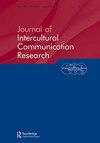“I Can Learn How to Communicate Appropriately in This Language” Examining the Links between Language Mindsets and Understanding L2 Pragmatic Behaviours
Q1 Social Sciences
Journal of Intercultural Communication Research
Pub Date : 2021-06-17
DOI:10.1080/17475759.2021.1938173
引用次数: 5
Abstract
ABSTRACT Recent developments regarding mindsets have led to interesting findings in respect to language learning. Despite this interest, no one to the best of our knowledge has investigated individuals’ mindsets regarding the learnability of second language (L2) pragmatic norms. This study was set out to explore the structural relation between L2 learners’ belief systems -fixed and growth mindsets- and their L2 pragmatic norms including recognition, evaluation, perception, and conformity. Questionnaire data were collected from 213 learners of English as a foreign language in the context of Iran. The participants were asked to respond to questionnaire items on pragmatic norms, competence, motivation, and mindsets. Results of path analysis revealed that fixed and growth mindsets and L2 pragmatic competence positively predicted evaluation, perception and conformity to L2 pragmatic norms via the mediation of motivation. Our findings indicate that language mindsets play an important role in learners’ motivation to learn and use the pragmatic norms of the language they are learning. Results also imply that growth mindset should be encouraged among both language teachers and learners in order to achieve better outcomes in teaching pragmatics.“我能学会如何用这种语言恰当地交流”——考察语言心态与理解二语语用行为之间的联系
最近关于思维方式的发展在语言学习方面带来了有趣的发现。尽管有这种兴趣,但据我们所知,还没有人调查过个人对第二语言(L2)语用规范的可学习性的心态。本研究旨在探讨二语学习者的信念系统(固定心态和成长心态)与他们的二语语用规范(认知、评价、感知和遵从)之间的结构关系。问卷调查收集了213名伊朗背景下的英语作为外语学习者的数据。参与者被要求回答关于实用规范、能力、动机和心态的问卷项目。通径分析结果显示,固定心态、成长心态和二语语用能力通过动机的中介作用正向预测二语语用规范的评价、感知和遵从。我们的研究结果表明,语言心态在学习者学习和使用所学语言的语用规范的动机中起着重要作用。结果还表明,为了在语用学教学中取得更好的效果,语言教师和学习者都应该鼓励成长心态。
本文章由计算机程序翻译,如有差异,请以英文原文为准。
求助全文
约1分钟内获得全文
求助全文
来源期刊

Journal of Intercultural Communication Research
Social Sciences-Cultural Studies
CiteScore
2.00
自引率
0.00%
发文量
20
 求助内容:
求助内容: 应助结果提醒方式:
应助结果提醒方式:


